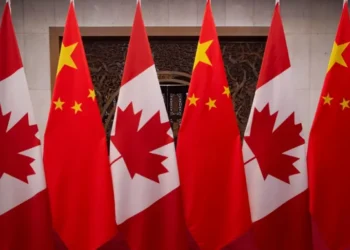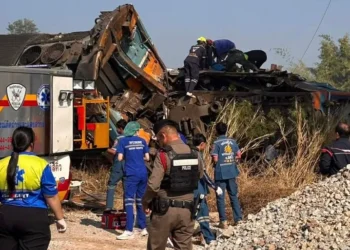Voting has ended in Sri Lanka’s presidential election and officials are currently counting the ballots.
Sri Lankans went to the polls on Saturday, September 21, 2024, to elect the nation’s 10th President.
The polls were held from 7 am to 4 pm local time at over 13,400 polling stations at 22 electoral districts.
It marked the first election since the devastating 2022 economic crisis that led to a loan default.
The country seeks to recover from an economic crisis and political upheaval that triggered mass protests and forced then-President Gotabaya Rajapaksa to flee.
Incumbent President Ranil Wickremesinghe, who succeeded Rajapaksa and has been working to revitalize Sri Lanka’s economy, is running for re-election.
The election, contested by 38 candidates, is largely a three-way race among Wickremesinghe, Marxist-leaning lawmaker Anura Kumara Dissanayake of the Janatha Vimukthi Peramuna (JVP) and opposition leader Sajith Premadasa from the Samagi Jana Balawegaya (SJB) party.
Director General Elections Saman Sri Ratnayaka announced that the voter turnout in the presidential election is expected to be 75 per cent, which would be lower than the voter turnout recorded in the previous presidential election held in November 2019.
The record for voter turnout in a Sri Lankan presidential election was set in 2019 at 83.72 percent.
There were no major incidents reported during the vote but authorities declared a countrywide curfew until Sunday, September 22, 2024, morning as a precaution.
Police said that the nationwide curfew was imposed in the country after voting ended in “view of the safety of the public.”
Final results are expected on Sunday.
The election on Saturday is widely seen as a referendum on Wickremesinghe, who has restored some stability through austerity policies backed by the International Monetary Fund (IMF).
The measures, including tax hikes, have left millions struggling to make ends meet and are unpopular with many voters.
The economic crisis has boosted support for Anura Kumara Dissanayake, the leader of the Janatha Vimukthi Peramuna (JVP).
Fellow opposition leader Sajith Premadasa, 57, the son of a former President assassinated in 1993 during the country’s decades-long civil war, is also expected to make a strong showing.
Both Premadasa and Dissanayake have pledged to renegotiate the terms of the IMF rescue package to make austerity measures more bearable.
Wickremesinghe has warned that any move to alter the basics of the agreement could delay the release of a fourth tranche of nearly $3bn in assistance pledged by the IMF that is crucial to maintaining stability.
Economy At The Forefront
Most Sri Lankans voted with the economy in mind, hoping a new government will lead the way out of crisis and end entrenched corruption.
Economic issues were at the forefront of the eight-week campaign, prompted by widespread public anger over the hardships endured since the height of the crisis two years ago.
Official data showed that Sri Lanka’s poverty rate doubled to 25 percent between 2021 and 2022, adding more than 2.5 million people to those already living on less than $3.65 a day.
Experts warn that Sri Lanka’s economy is still vulnerable, with payments on the island’s $46bn foreign debt yet to resume since a 2022 government default.
The IMF said that reforms enacted by Wickremesinghe’s government were beginning to pay off, with growth slowly returning.
Meanwhile, political experts claim that widespread disenchantment with the political old guard, widely blamed for Sri Lanka’s economic instability, could mean no single candidate is able to secure 50% of votes as a first preference.
In that scenario, the top two candidates move to a second round of counting that takes into account second-choice votes.
There are concerns that if a clear winner fails to emerge, the island nation could plunge into more instability.
READ ALSO: Bagbin Calls for Constitutional Reforms and Urgent Action to Preserve Ghana’s Democracy























